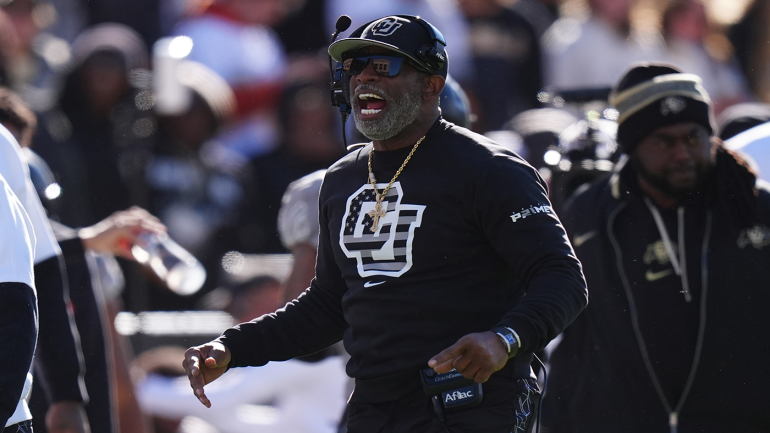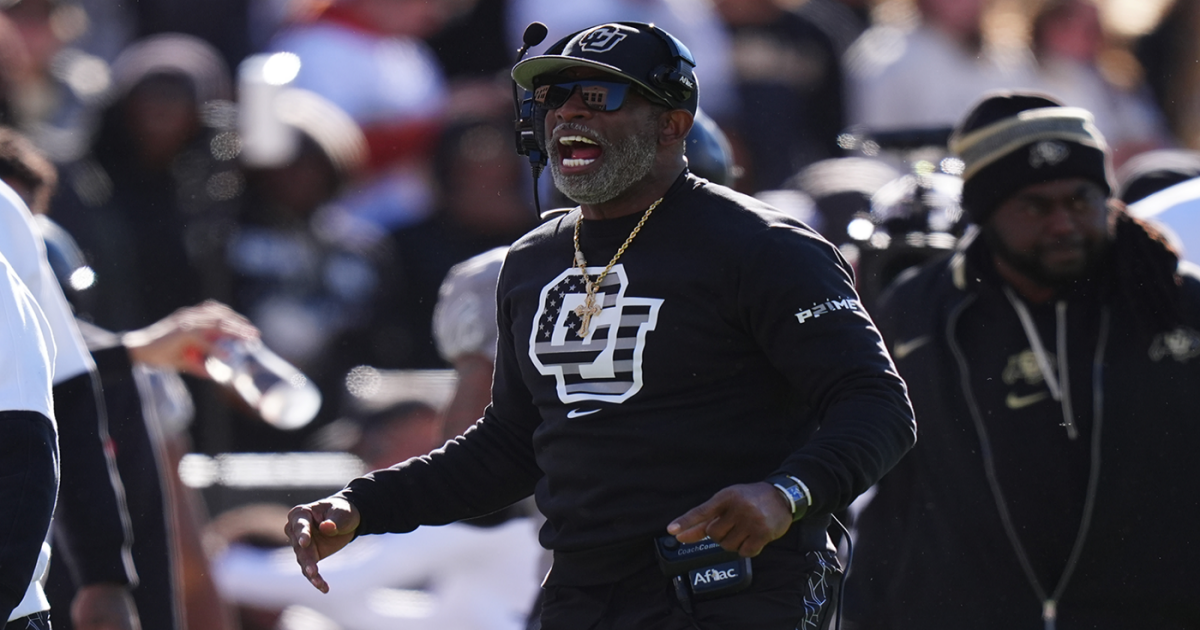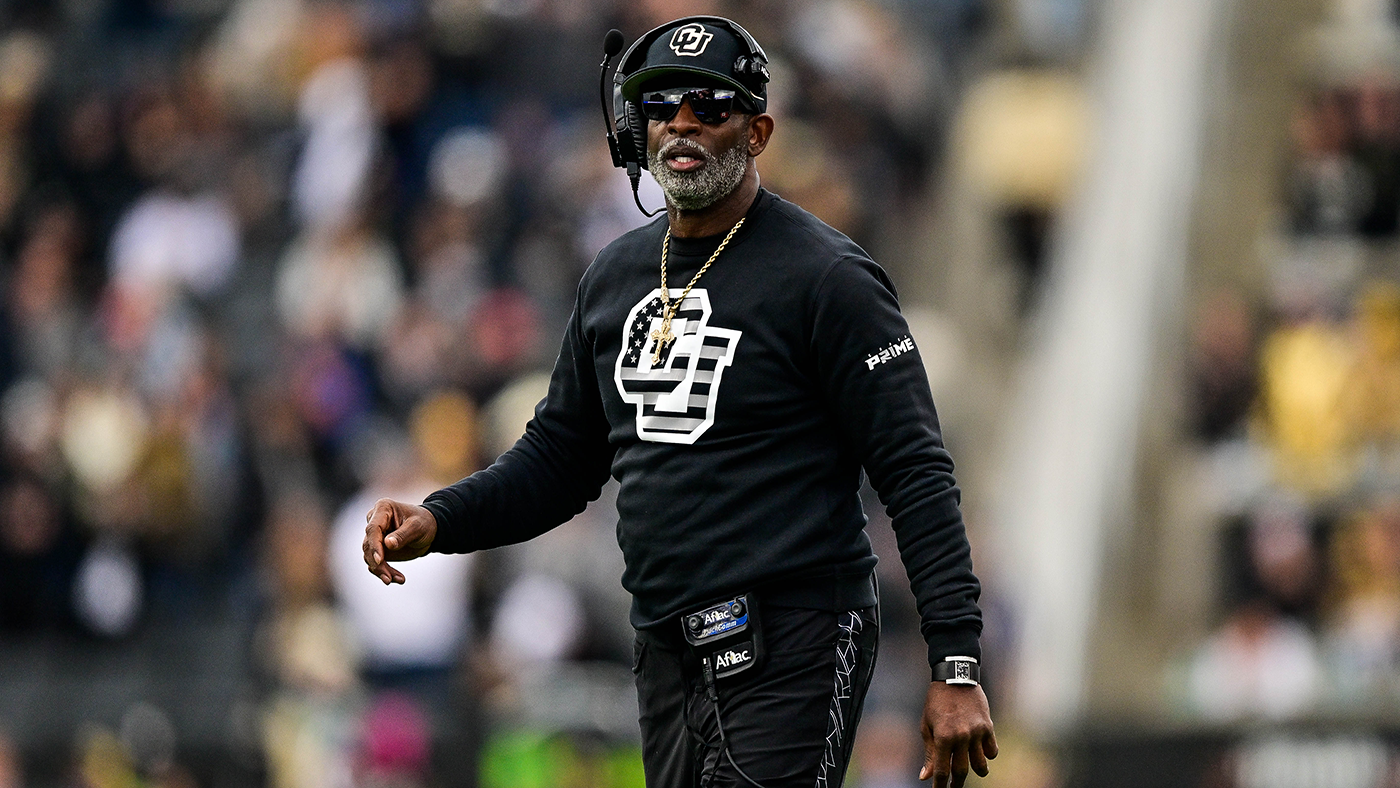
Imagn Images
Colorado announced a contract extension for Deion Sanders on Friday that will keep him in gold and black through the 2029 season. The deal will also pay him plenty of green as he’ll be making $54 million over the course of the five-year agreement.
“I’m excited for the opportunity to continue building something special here at Colorado,” Sanders said in the official release from the school.
Well, he should be excited. The average salary of $10.8 million per year puts Sanders in a prime salary position among the top-10 paid coaches in the country. It was a statement from Colorado about how it feels through two years in the whirlwind life that is Coach Prime.
Of course, as is the case with everything Deion Sanders, the deal caused swift reactions. After all, through two seasons at Colorado, Sanders has a record of 13-12 overall and 8-10 in conference play — which is slightly misleading, however. After a 4-8 start in 2023, the Buffs went 9-4 in 2024, were in contention for a Big 12 title until the final weeks of the season and saw Travis Hunter become the first Colorado player to win the Heisman Trophy since running back Rashaan Salaam in 1994.
There will also be attention on what he hasn’t accomplished, though. Yes, Colorado was in Big 12 contention, but it fell short. Through two seasons, he hasn’t won a conference title, nor has he won 10 games in a season.
But, guess what? Mark Stoops has been at Kentucky for 12 seasons and has never won a division title or the SEC crown. He did win 10 games in 2018, though. What’s that have to do with Deion? Well, Stoops was the ninth-highest-paid coach in the country before Sanders’ new deal. When Stoops received a contract that paid him like a top-10 coach, there wasn’t much national attention paid to it. He was just another coach being paid a lot of money, and some would argue he was paid too much.
I don’t say this to denigrate Stoops (who has done as well, if not a lot better than can be reasonably expected at Kentucky) or any other coach. They all receive salaries in line with what the market demands, which is precisely what Sanders has done. The difference compared to plenty of others is I can argue Sanders’ contract is something of a bargain, all things considered.
While he hasn’t won big at Colorado, Sanders has made Colorado a major national talking point. Sanders brings value based on the fact you’re reading this right now and that I wrote it for you to read in the first place. Attendance at Colorado games has risen, bringing in greater revenue. His presence on the sideline has made the program an object of desire among television networks and will increase the amount of money Colorado — and the rest of the Big 12 — receive from TV deals in the long run.
Take a look at what’s happening in the ACC right now, and what has already happened to the Pac-12. The latter is gone, while the former signed a five-year deal to keep Florida State and Clemson from pulling the plug a little longer. Meanwhile, when the new TV contracts come around, Sanders’ presence at Colorado makes the team — and the Big 12 — a draw.
When the (likely) inevitable happens and we consolidate conferences once more, his presence will make Colorado a desirable property then as well. The money that would come from that will make this $54 million seem a pittance.
There’s also the intangible effect of having the deal signify Sanders is in it for the long haul — something that was rightfully questioned since he took the job. Sanders’ entire coaching career at any level had always involved one of his sons on the team. That won’t be the case in 2025, as Shedeur and Shilo Sanders have run out of eligibility and will pursue NFL careers.
So, yes, $54 million is a lot to pay a football coach who hasn’t won big yet. Hell, it’s a lot to pay a football coach who has! But whether you’re shocked by it or not, it doesn’t change the fact the deal is worth it for both Sanders and Colorado.

